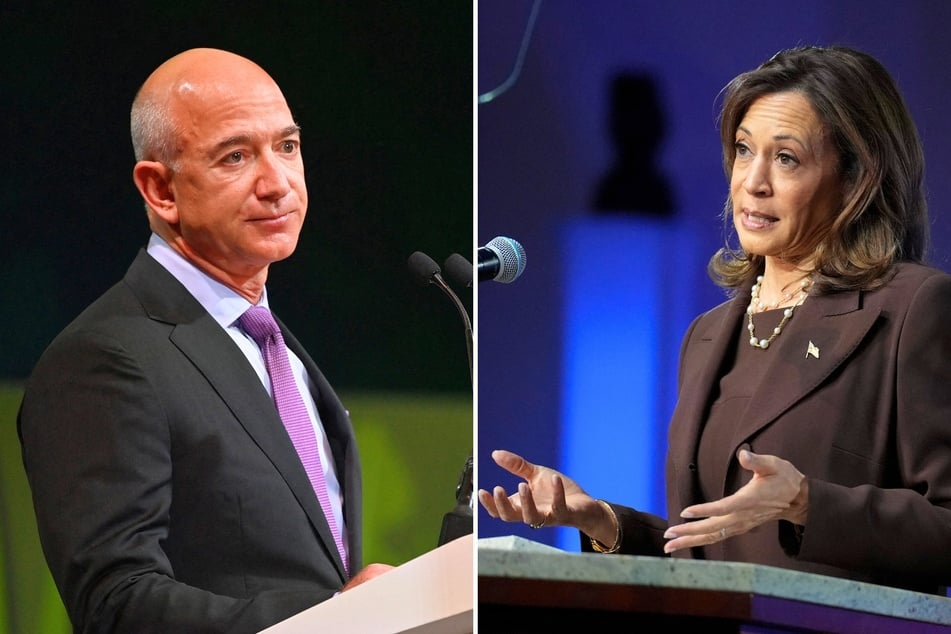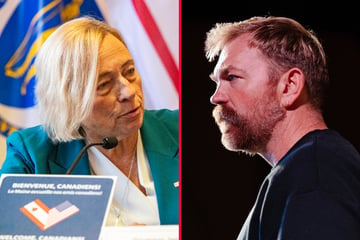Jeff Bezos defends blocking Washington Post Harris endorsement as thousands unsubscribe
Washington DC - Billionaire owner Jeff Bezos recently defended his decision to stop the Washington Post from endorsing Kamala Harris as thousands of subscribers leave the outlet.

On Monday night, Bezos shared an op-ed in which he argued that endorsements from news outlets only serve to create bias.
"Presidential endorsements do nothing to tip the scales of an election. No undecided voters in Pennsylvania are going to say, 'I'm going with Newspaper A's endorsement.' None," Bezos wrote.
"What presidential endorsements actually do is create a perception of bias. A perception of non-independence," he continued, adding, "Ending them is a principled decision, and it's the right one."
Bezos' comments come after the outlet announced last Friday that he had blocked a planned endorsement of Harris, breaking with a decades-long tradition for the newspaper.
Bezos denies "intentional strategy" behind blocked endorsement
When news of the blocked endorsement broke, it was not made clear as to why Bezos made the decision. Many critics speculated that it was done so out of business reasons – particularly concerning ongoing dealings he has with Republican presidential candidate Donald Trump.
According to NPR, the Washington Post has since lost over 200,000 subscribers after the blocked endorsement, accounting for about 8% of their paid circulation.
In his op-ed, Bezos also insisted there was "no quid pro quo of any kind" when making the change and claimed his decision came so soon before the election because of "inadequate planning, and not some intentional strategy."
Cover photo: Collage: Paul ELLIS / POOL / AFP & Andrew Harnik / GETTY IMAGES NORTH AMERICA / Getty Images via AFP
